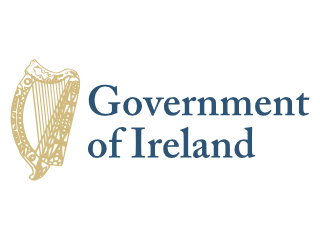Celtic tribes arrived on the island between 600 and 150 B.C. Invasions by Norsemen that began in the late 8th century were finally ended when King Brian BORU defeated the Danes in 1014. Norman invasions began in the 12th century and set off more than seven centuries of Anglo-Irish struggle marked by fierce rebellions and harsh repressions. The Irish famine of the mid-19th century saw the population of the island drop by one third through starvation and emigration. For more than a century after that the population of the island continued to fall only to begin growing again in the 1960s. Over the last 50 years, Ireland's high birthrate has made it demographically one of the youngest populations in the EU. The modern Irish state traces its origins to the failed 1916 Easter Monday Uprising that touched off several years of guerrilla warfare resulting in independence from the UK in 1921 for 26 southern counties; six northern (Ulster) counties remained part of the UK. Unresolved issues in Northern Ireland erupted into years of violence known as the "Troubles" that began in the 1960s. The Government of Ireland was part of a process along with the UK and US Governments that helped broker what is known as The Good Friday Agreement in Northern Ireland in 1998. This initiated a new phase of cooperation between the Irish and British Governments. Ireland was neutral in World War II and continues its policy of military neutrality. Ireland joined the European Community in 1973 and the euro-zone currency union in 1999. The economic boom years of the Celtic Tiger (1995-2007) saw rapid economic growth, which came to an abrupt end in 2008 with the meltdown of the Irish banking system. Today the economy is recovering, fueled by large and growing foreign direct investment, especially from US multi-nationals.
Ireland is a parliamentary republic.
Source: CIA World Factbook
Members:
Resources
Displaying 61 - 65 of 137Energy (Miscellaneous Provisions) Act 2006 (section 28(4)) Regulations 2013 (S.I. No. 155 of 2013).
This Order provides that sections 69 to 83 of the Lands Clauses Consolidation Act 1845 shall, in accordance with subsection (4) of section 28 of the Energy (Miscellaneous Provisions) Act 2006 and without further modification, apply in all cases for the purposes of compulsory acquisition under the 2006 Act.
Implements: Lands Clauses Consolidation Act, 1845. (1845-05-18)
Implements: Energy (Miscellaneous Provisions) Act 2012 (No. 3 of 2012). (2012)
European Union (Good Agricultural Practice for Protection of Waters) (Amendment) Regulations 2014 (S.I. No. 134 of 2014).
These Regulations amend the European Union (Good Agricultural Practice for Protection of Waters) Regulations 2014 so as to give effect to the Commission Implementing Decision on granting a derogation requested by Ireland pursuant to Council Directive 91/676/EEC concerning the protection of waters against pollution caused by nitrates from agricultural sources. They also make technical amendments to sections 17 and 26 of the principal Regulations and insert a new Part (7) on implementation of the Commission Decision.
European Communities (Good Agricultural Practice for Protection of Waters) Regulations 2014 (S.I. No. 31 of 2014).
These Regulations provide, for purposes of implementation of the give effect to Irelands Third Nitrates Action Programme, rules relative to good agricultural practice to protect waters against pollution from agricultural sources and prescribe measures for these purposes, including: periods when land application of fertilizers is prohibited; limits on the land application of fertilizers; storage requirements for livestock manure; and monitoring of the effectiveness of the measures in terms of agricultural practice and impact on water quality.
European Union (Environmental Impact Assessment and Habitats) (Section 181 of the Planning and Development Act 2000) Regulations 2013 (S.I. No. 403 of 2013).
These Regulations provide for the direct application by state authorities to An Bord Pleanála (National Planning Board) for approval for works or development where the works or development are urgently required in order to preserve, protect or improve the quality of the environment or protect human health, in compliance with EU Directives.
Implements: Planning and Development Act, 2000 (Act No. 30 of 2000). (2000-08-28)
Planning and Development (Amendment) (No. 2) Regulations 2013 (S.I. No. 520 of 2013).
These Regulations amend the Planning and Development Regulations 2001 in various Regulations so as to insert Irish Water as a prescribed body for the purposes of plans and proposed development under various provisions of the Planning and Development Act, 2000.
Amends: Planning and Development Regulations, 2001 (S.I. No. 600 of 2001). (2001-12-19)


